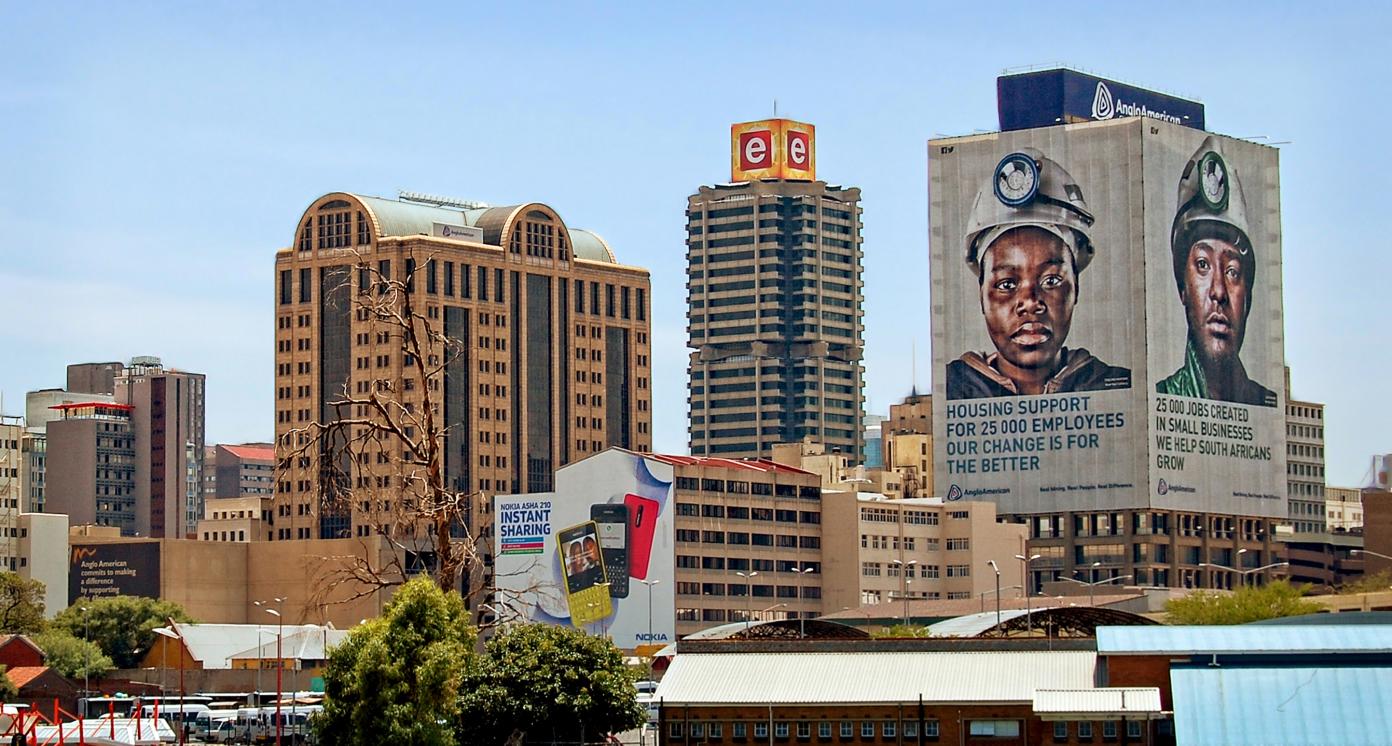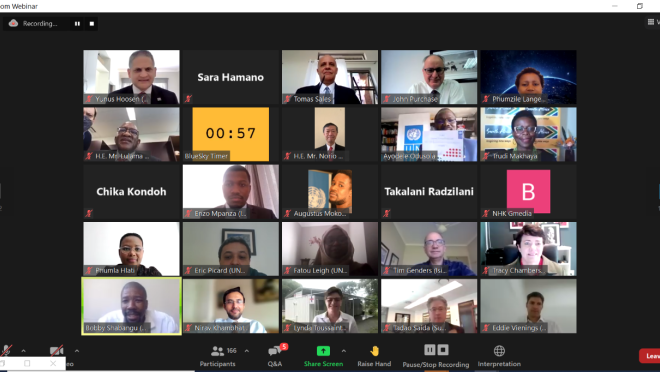COVID-19 is having a major impact on South Africa’s economy. The World Bank estimates that the economy contracted by 7% in 2020, as the pandemic weighed heavily on both external demand and domestic activity as the government implemented containment measures. This severe contraction is estimated to increase poverty by 2 million people (living below the poverty line for upper-middle income countries, $5.5 per day in 2011 Purchasing Power Parity exchange rates, PPP).
South Africa has made considerable strides to improve the wellbeing of its citizens since its transition to democracy in the mid-1990s, but progress has stagnated in the last decade. The percentage of the population below the upper-middle-income-country poverty line fell from 68% to 56% between 2005 and 2010 but has since trended slightly upwards to 57% in 2015 and is projected to reach 60% in 2020.
Structural challenges and weak growth have undermined progress in reducing poverty, which have been heightened by the COVID-19 pandemic. The achievement of progress in household welfare is severely constrained by rising unemployment, which reached an unprecedented 32.5 percent in the fourth quarter of 2020. The unemployment rate is highest among youths aged between 15 and 24, at around 63%.
South Africa remains a dual economy with one of the highest, persistent inequality rates in the world, with a consumption expenditure Gini coefficient of 0.63 in 2015. High inequality is perpetuated by a legacy of exclusion and the nature of economic growth, which is not pro-poor and does not generate sufficient jobs. Inequality in wealth is even higher and intergenerational mobility is low meaning inequalities are passed down from generation to generation with little change over time.
Source: World Bank, South Africa Country Overview
Access the South Africa SDG Investor Map narrative report here.
20
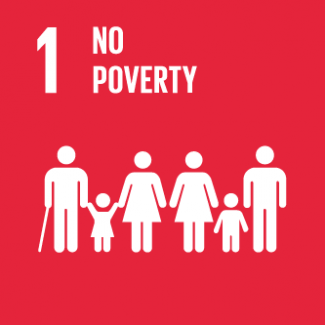
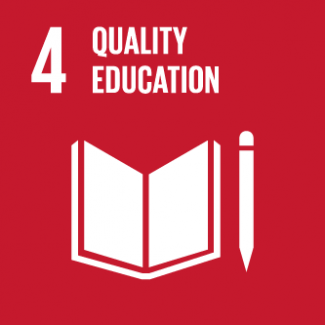
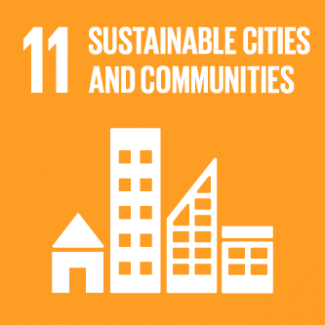
Infrastructure, Education, Health Care
0.709
How is this information gathered?
SDG Investor Maps employ an 8-step methodology, combining data research and stakeholder consultations to identify Investment Opportunity Areas (IOAs) and potential business models with significant financial and impact potential.
Disclaimer
UNDP, the Private Finance for the SDGs, and their affiliates (collectively “UNDP”) do not seek or solicit investment for programmes, projects, or opportunities described on this site (collectively “Programmes”) or any other Programmes, and nothing on this page should constitute a solicitation for investment. The actors listed on this site are not partners of UNDP, and their inclusion should not be construed as an endorsement or recommendation by UNDP for any relationship or investment.
The descriptions on this page are provided for informational purposes only. Only companies and enterprises that appear under the case study tab have been validated and vetted through UNDP programmes such as the Growth Stage Impact Ventures (GSIV), Business Call to Action (BCtA), or through other UN agencies. Even then, under no circumstances should their appearance on this website be construed as an endorsement for any relationship or investment. UNDP assumes no liability for investment losses directly or indirectly resulting from recommendations made, implied, or inferred by its research. Likewise, UNDP assumes no claim to investment gains directly or indirectly resulting from trading profits, investment management, or advisory fees obtained by following investment recommendations made, implied, or inferred by its research.
Investment involves risk, and all investments should be made with the supervision of a professional investment manager or advisor. The materials on the website are not an offer to sell or a solicitation of an offer to buy any investment, security, or commodity, nor shall any security be offered or sold to any person, in any jurisdiction in which such offer would be unlawful under the securities laws of such jurisdiction.















